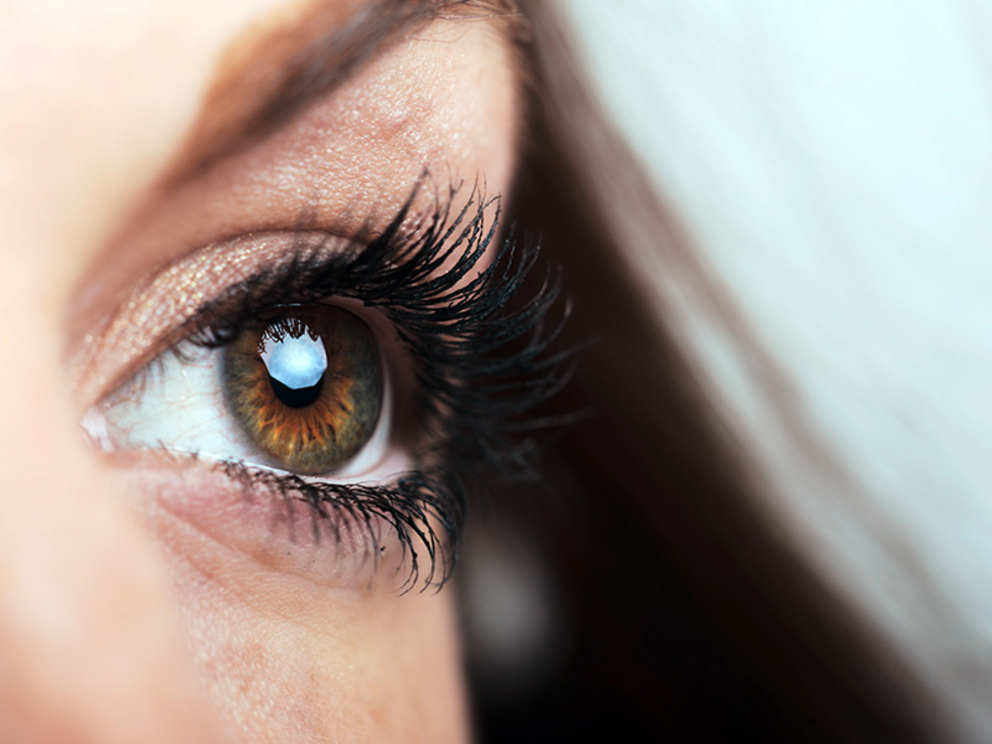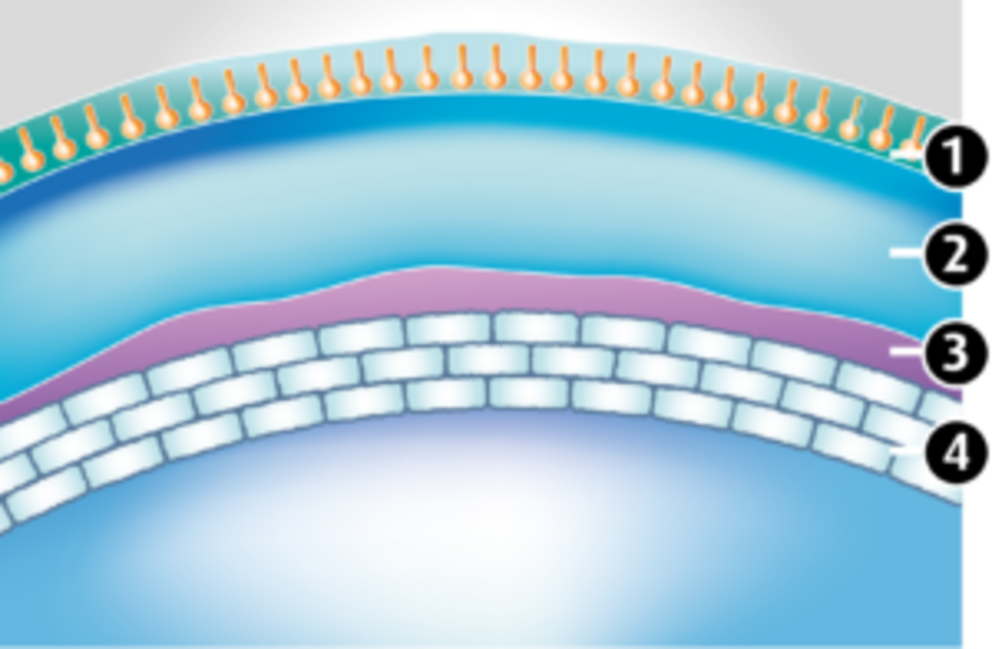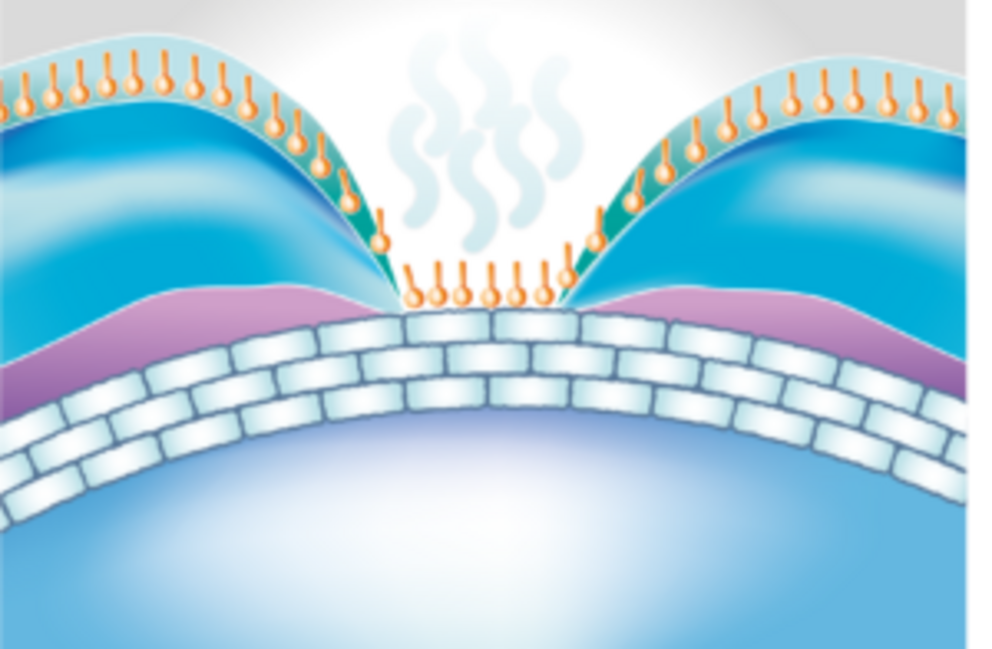Dry eyes – symptoms and treatment
The clinical picture of dry eyes is technically described as a lubricating disorder or as keratoconjunctivitis sicca. It is also referred to as sicca syndrome. It occurs when there is insufficient lacrimal fluid or if this is displaying changes in its composition. General health problems or certain eye diseases can also be the cause of dry eyes. In all cases, it concerns the break-up of the tear film, which forms a protective coating on the surface of the eye.

Dry eyes, also known as sicca syndrome, are accompanied by redness, burning and a foreign body sensation in the eye.
Different factors affect the tear film
More and more people are suffering from dry eyes. On the one hand, this is due to changes in environmental conditions and lifestyles, on the other, to the constantly ageing population, because the risk of lubricating disorders increases with age. Quite often, frequently working at a monitor causes the eyes to dry out. We tend to blink considerably less while working on a computer or using a smartphone than with other activities. This leads to diminished distribution of the tear film on the surface of the eye.
Wearers of contact lenses are also often afflicted with dry eyes because the lenses impede the flow and distribution of the lacrimal fluid on the surface of the eye. This increases the risk of lubricating disorder by a factor of twelve. Dry ambient air caused by central heating and air-conditioning systems, exhaust gases, ozone or smoke can also damage the tear film.
Injuries or inflammation of the eye can also influence the amount of tears or the composition of the lacrimal fluid. Diseases, particularly of the skin or the nerves, and various medicines, such as beta blockers, also occasionally influence the amount and quality of the tear film.
A ruptured tear film no longer offers protection for the eye
If too little lubricating fluid is available for the eye or if the lacrimal fluid has an altered composition, this can lead to the tear film breaking up. This in turn produces hypersensitivity of the eye towards the environment. Lubricating fluid provides important protection for the eye and supplies the upper layer of cells with nutrients and oxygen. If the lubricating film is damaged, more germs can enter and infection occurs more quickly. In addition to that, the break-up of the tear film can lead to the drying up, scarring and clouding of the cornea, which can permanently impair vision.
Dry eyes itch and burn
Varied symptoms occur when the lubrication of the eye is disturbed. Typical for sicca syndrome are redness as well as a scratching, burning or itching sensation in the eye. Also, a redness as well as the sensation of having a foreign body in the eye is often observed. The eyes feel tired or water excessively.
The right help for dry eyes
For most patients with mild or moderate symptoms of lubricating disorder, it is enough to moisten the eyes several times a day with suitable drops, so-called artificial tears. These lubricating eye drops also work well for people who only suffer from dry eyes in certain situations, such as working at a computer or being in windy conditions. For more severe and chronic symptoms there are specially developed gel drops, which have a higher viscosity than normal lubricating eye drops and therefore adhere longer to the surface of the eye. The additional use of an ointment at night time can be useful because substantially less lacrimal fluid is produced during sleep. This can cause incrustations on the edge of the eyelids which can in turn lead to minor damage on the surface of the eye.
In addition, factors which reinforce dry eyes should be eliminated as far as possible. Air-conditioning systems should be avoided and heated rooms should be regularly aired. It is also not advisable to stay in smoky rooms. Our tip: instead of sitting in front of the television after work, have a walk in the fresh air – it is like a vacation for the eyes.
If the dry eye syndrome is the result of a systematic illness, of taking medicines or of an eye injury, then these causes should be eliminated where possible. For this, it is vital to consult a doctor. In the case of sustained and marked problems, too, you should not shy away from consulting a specialist. They can make an accurate diagnosis and recommend an appropriate therapy.


